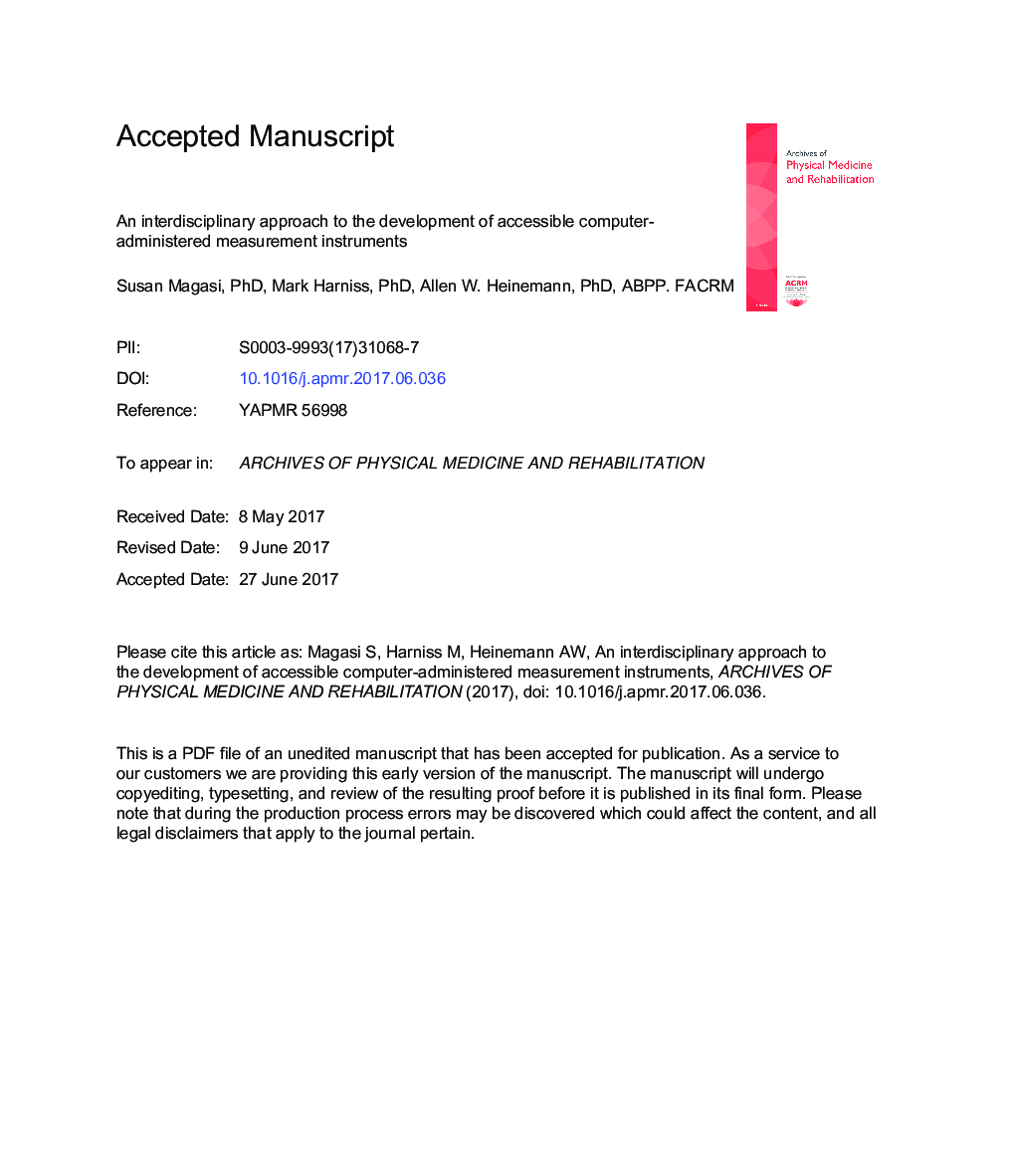| Article ID | Journal | Published Year | Pages | File Type |
|---|---|---|---|---|
| 8753811 | Archives of Physical Medicine and Rehabilitation | 2018 | 23 Pages |
Abstract
Principles of fairness in testing require that all test takers, including people with disabilities, have an equal opportunity to demonstrate their capacity on the construct being measured. Measurement design features and assessment protocols can pose barriers for people with disabilities. Fairness in testing is a fundamental validity issue at all phases in the design, administration, and interpretation of measurement instruments in clinical practice and research. There is limited guidance for instrument developers on how to develop and evaluate the accessibility and usability of measurement instruments. This article describes a 6-stage iterative process for developing accessible computer-administered measurement instruments grounded in the procedures implemented across several major measurement initiatives. A key component of this process is interdisciplinary teams of accessibility experts, content and measurement experts, information technology experts, and people with disabilities working together to ensure that measurement instruments are accessible and usable by a wide range of users. The development of accessible measurement instruments is not only an ethical requirement, it also ensures better science by minimizing measurement bias, missing data, and attrition due to mismatches between the target population and test administration platform and protocols.
Keywords
Related Topics
Health Sciences
Medicine and Dentistry
Medicine and Dentistry (General)
Authors
Susan PhD, Mark PhD, Allen W. PhD, ABPP, FACRM,
